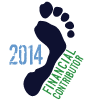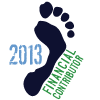But if it was by standing up straight that our ancestors embarked upon the road to civilization, it was not – according to this story – their feet that brought them there. It was their hands
(...)
It must have been of great advantage to man, Darwin reasoned, ‘to stand firmly on his feet’, since this would have left the hands and arms free for the essential arts of subsistence and survival (Darwin, 1874: 77). Above all, bipedal posture liberated the hands for the use and manufacture of tools. And it was the selective advantages conferred by tools, according to Darwin, that ultimately set up the conditions for the enlargement of the brain.
(...)
The idea that bipedal locomotion liberates the hands, and furthermore that the free hand endows human beings with an intellectual superiority over all other creatures, can be traced back to classical Antiquity. It is to be found in the writings of Xenophon, Aristotle, Vitruvius and Gregory of Nyssa, and was already common-place among naturalists of the 18th and early 19th centuries
(...)
Man could not have attained his present dominant position in the world without the use of his hands’, says Darwin, ‘which are so admirably adapted to act in obedience to his will’.‘The hand supplies all instruments, and by its correspondence with the intellect gives [man] universal dominion’ (Darwin, 1874: 76–7).
(...)
As the savage was regarded as anatomically intermediate between the ape and the civilized human, it would stand to reason that his feet would retain some vestiges of the ape-like form. (...)‘It must not be forgotten’, Huxley warns us, ‘that the civilized great toe, confined and cramped from childhood upwards, is seen to a great disadvantage, and that in uncivilized and barefooted people it retains a great amount of mobility, and even some sort of opposability’ (Huxley, 1894: 119). Paradoxically, it seems that with the onward march of civilization, the foot has been progressively withdrawn from the sphere of operation of the intellect, that it has regressed to the status of a merely mechanical apparatus, and moreover that this development is a consequence – not a cause – of technical advance in footwear. Boots and shoes, products of the ever more versatile human hand, imprison the foot, constricting its freedom of movement and blunting its sense of touch.
(...)
it amounts to an admission that the ideal-type human being, the gold standard against which similarities and differences between humans and apes are to be gauged, is one that has to a significant degree been forced into shape through the artificial application of a restrictive technology
(...)
Is the conventional division of labour between hands and feet, then, as ‘natural’ as Darwin and his contemporaries made it out to be? Could it not be, at least in some measure, a result of the mapping, onto the human body, of a peculiarly modern discourse about the triumph of intelligence over instinct, and about the human domination of nature? And could not the technology of footwear be understood, again in some measure, as an effort to convert the imagined superiority of hands over feet, corresponding respectively to intelligence and instinct, or to reason and nature, into an experienced reality?
(...)
'a chair is the first thing you need when you don’t really need anything, and is therefore a peculiarly compelling symbol of civilization’ (Caplan, 1978:18). Nothing however better illustrates the value placed upon a sedentary perception of the world, mediated by the allegedly superior senses of vision and hearing, and unimpeded by any haptic or kinaesthetic sensation through the feet. Where the boot, in reducing the activity of walking to the activity of a stepping-machine, deprives wearers of the possibility of thinking with their feet, the chair enables sitters to think without involving the feet at all. Between them, the boot and the chair establish a technological foundation for the separation of thought from action and of mind from body – that is for the fundamental groundlessness so characteristic of modern metropolitan dwelling (Lewis, 2001: 68)
(...)
‘Man’, he has declared, ‘is an animal suspended in webs of significance he himself has spun.’ I think we should perhaps amend this statement, to say that only booted and seated man, artificially insulated – whether in movement or at rest – from direct contact with the ground, would consider himself so suspended
(...)
Older children are urged to stand up straight, and to ‘walk from the hips’ with minimal bending at the knees. To succeed in this, they must be fitted with appropriate footwear. Indeed one of the most essential bodily skills that every child has to master before being able to make his or her way in a boot-clad society such as our own, is the art of tying shoelaces.
(...)
Whereas the European walks from the hips while keeping the legs as straight as possible, Japanese people traditionally walked from the knees while minimizing movement at the hips. (...) the Japanese do not, as a rule, oppose the conditions of animality and humanity as we do, nor do they consider the quadruped as necessarily a being inferior to man.
(...)
Most metropolitan societies have transformed their urban spaces into something approximating the parade-ground, by paving the streets. In so doing, they have literally paved the way for the boot-clad pedestrian to exercise his feet as a stepping machine
(...)
Men have made history with their hands; they have mastered nature and brought it under control. And the nature thus controlled includes the foot, increasingly regulated and disciplined in the course of history by the hand-made technology of boots and shoes.
(...)
Darwin regarded the relatively prehensile foot of the unshod savage as intermediate between that of the ape on the one hand, and the civilized man on the other. This view is no longer admissible today. We know that the boot-clad European is, genealogically speaking, no further removed from the ape than the barefoot Aborigine
(...)
The foot is a very sensitive organ. For every square inch of sole, there are no fewer than 1300 nerve endings (Tenner, 2003: 52).


































